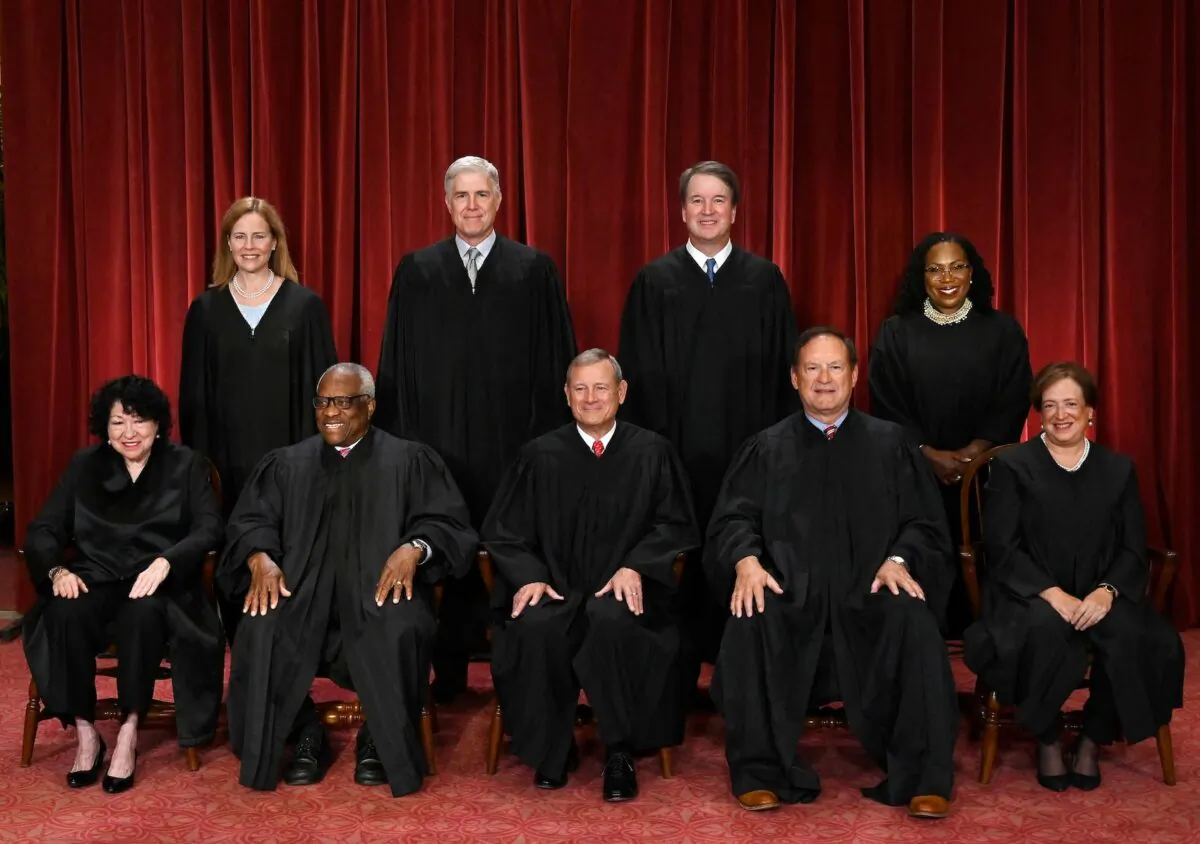
The U.S. Supreme Court on Tuesday rejected a request from Alabama Republicans to use a congressional map that includes one majority-black congressional district.
Tuesday’s one-line court’s decision leaves intact a Sept. 5 decision by a federal three-judge panel in Birmingham, Alabama, which said the map approved by the state’s Republican-led legislature to set the boundaries of Alabama’s seven House of Representatives districts was unlawfully biased against black voters and must be redrawn.
The new map was thrown out in two different lower court rulings earlier this year, with judges saying an additional minority-black district was required, in line with the Supreme Court’s June ruling.
“We are deeply troubled that the State enacted a map that the State readily admits does not provide the remedy we said federal law requires,” wrote the three-judge panel in Birmingham. That came before it reached the Supreme Court for a second time.
The judges added that it is “not aware of any other case in which a state legislature … responded with a plan that the state concedes does not provide that district.”
A special master now has to be appointed to come up with a “remedial map to ensure that a plan can be implemented as part of an orderly process in advance of elections, where the State was given an opportunity to enact a compliant map but failed to do so,” the judges wrote (pdf).
That prompted a statement from Alabama Attorney General Steve Marshall, who said earlier this month that his state would appeal the order.
The Republican attorney general’s office said on Sept. 5 that “while we are disappointed in today’s decision, we strongly believe that the Legislature’s map complies with the Voting Rights Act and the recent decision of the U.S. Supreme Court. We intend to promptly seek review from the Supreme Court to ensure that the State can use its lawful congressional districts in 2024 and beyond.”
But the Supreme Court on Tuesday responded by issuing an unsigned order: “The application for stay presented to Justice Thomas and by him referred to the Court is denied.” The high court provided no written rationale for its decision.
After the Supreme Court’s action on Tuesday, Mr. Marshall has not yet issued a public comment.
Prior Ruling
In June, the Supreme Court in a 5–4 ruling affirmed a lower court order that had required the state to redraw its congressional map to include a second majority-black congressional district. Weeks later, Alabama GOP lawmakers approved a new congressional map that still only had one majority-black district, claiming that their map violated a portion of the Voting Rights Act.
In the second petition to the Supreme Court, the Alabama attorney general argued that the new congressional map kept the communities intact and unified the so-called “Black Belt” in the state.
“The 2023 plan departed from existing district lines to unify the Black Belt, it split the minimum number of county lines necessary to equalize population among districts and it made the map significantly more compact through changes to each district,” Mr. Marshall, a Republican, wrote in his petition.
The lower court that struck down their map again had committed errors in mandating a second district. “The court gutted the State’s discretion to apply traditional redistricting principles in 2023, by expressly refusing to defer to them when they didn’t yield the ‘right’ racial results,” he said.
Black people make up 27 percent of Alabama’s population but are in the majority in only one of the seven House districts as drawn by the state legislature in both the maps it has approved since the 2020 census.
Electoral districts are redrawn each decade to reflect population changes as measured by a national census. In most states, such redistricting is done by the party in power, which can lead to map manipulation for partisan gain. Voting rights litigation that could result in new maps of congressional districts is playing out in several states.
The Supreme Court’s June ruling was authored by Chief Justice John Roberts and joined in full by Democrat-appointed justices Sonia Sotomayor, Elena Kagan, and Ketanji Brown Jackson. Trump appointee Justice Brett Kavanaugh joined the judgment in a separate opinion.
The Republican-controlled legislature came up with a new map after the Supreme Court’s decision earlier this year. The Alabama House and Senate both passed the new map with significant majorities, according to reports.
The map was then signed into law by Alabama Gov. Kay Ivey, a Republican, in July.
“Following the U.S. Supreme Court order, I called the Alabama Legislature into a special session to readdress our congressional map,” Mrs. Ivey said in July after signing off on the map. “The Legislature knows our state, our people and our districts better than the federal courts or activist groups, and I am pleased that they answered the call, remained focused and produced new districts ahead of the court deadline.”
The latest Republican-drawn map drew swift objections from civil rights activists. They claimed the plan failed to fix the Voting Rights Act violation identified by the Supreme Court, and that it raised concerns under the U.S. Constitution’s 14th Amendment guarantee of equal protection under the law.
Reuters contributed to this report.
No comments:
Post a Comment